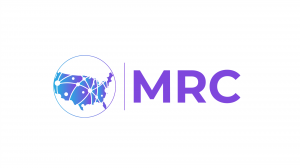Research Projects

The IMPOWR Dissemination, Education, and Coordination Center (IDEA-CC) aims to improve treatment for people with chronic pain (CP) and opioid use disorder (OUD) by integrating assessment and treatment pathways. Supported by the NIH NIDA and HEAL Initiative, IDEA-CC will enhance communication among IMPOWR clinical sites, address stigma and health disparities, and disseminate research findings. By creating a unified research infrastructure, we aim to develop effective interventions and educate healthcare providers and the community on co-morbid CP and OUD.

The HEAL Data2Action (D2A) program aims to develop real-time opioid overdose surveillance through flexible and innovative informatics solutions. Our project focuses on creating a robust data infrastructure for the HEAL D2A network. The Wake Forest Data Infrastructure Support Center (WF DISC) will provide expert clinical informatics support to overcome data challenges and ensure high-quality data infrastructures for the HEAL D2A Innovation Projects. Our objectives include developing data tools, offering analytical and visualization support, delivering training, and modernizing data infrastructure. This initiative aims to enable rapid intervention and resource allocation to significantly impact opioid overdose prevention, aligning with NIH NIDA and HEAL goals.

The MIRHIQL Resource Center (MRC) endeavors to enhance the management of long-term opioid therapy (LTOT) by establishing a clinical definition of opioid misuse and refining screening tools. Given the lack of consensus on defining opioid misuse, MRC aims to bridge this gap, facilitating better risk-benefit assessments for clinicians. By connecting the MIRHIQL network with IMPOWR and the larger HEAL ecosystem, MRC seeks to translate findings and develop essential infrastructure for addressing LTOT challenges. Through harmonized data collection, clinical definition refinement, and validation of screening tools, MRC aims to improve LTOT care, aligning with the mission of NIH HEAL.

This study investigates the impact of the COVID-19 pandemic on opioid use disorder (OUD) and related outcomes, utilizing extensive claims and electronic health data covering nearly half of the U.S. population. By analyzing pre-existing disparities and the effects of pandemic-related social, economic, and healthcare disruptions, the research aims to determine how these factors contribute to the escalation of OUD prevalence and harms. Using quasi-experimental methods, the study evaluates adverse OUD-related outcomes and health disparities, particularly focusing on communities disproportionately affected by the pandemic and pre-existing opioid crises.
